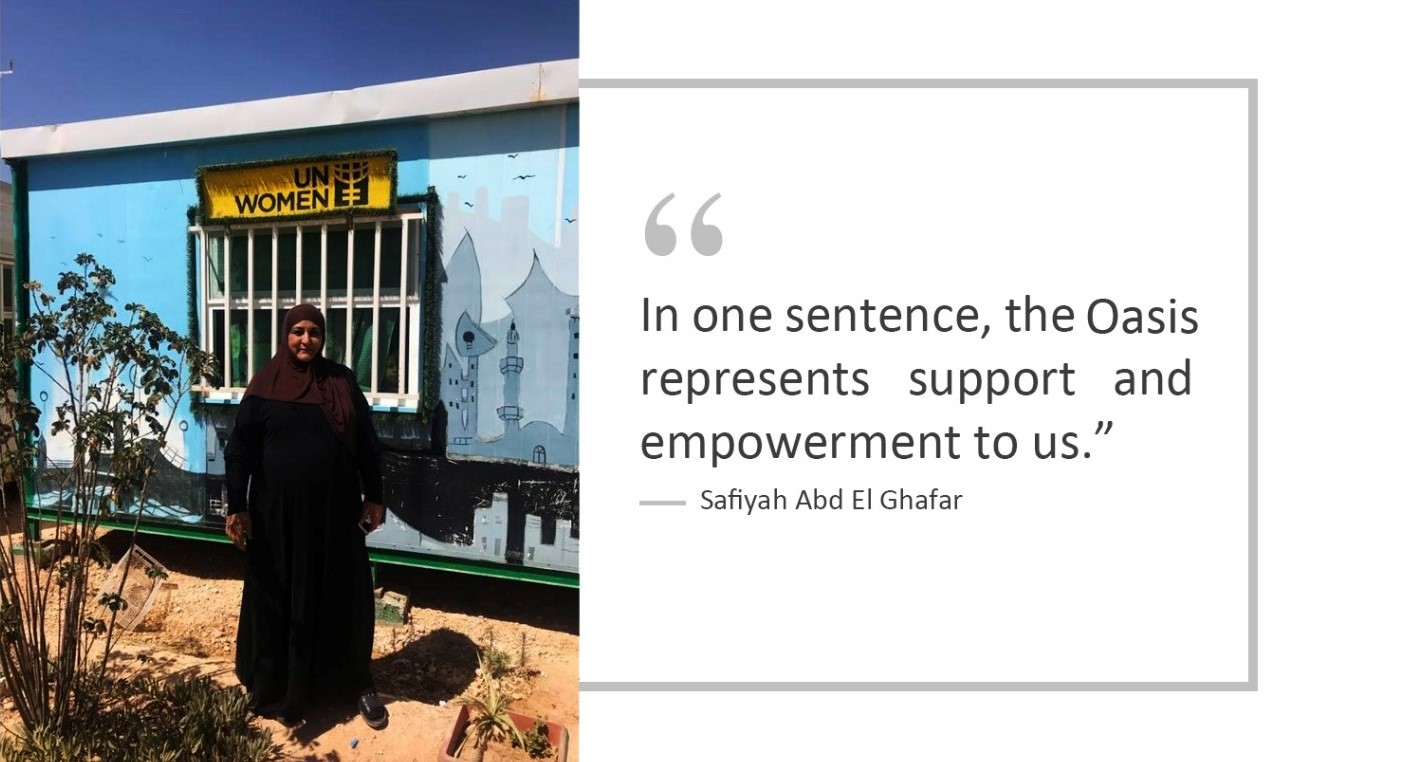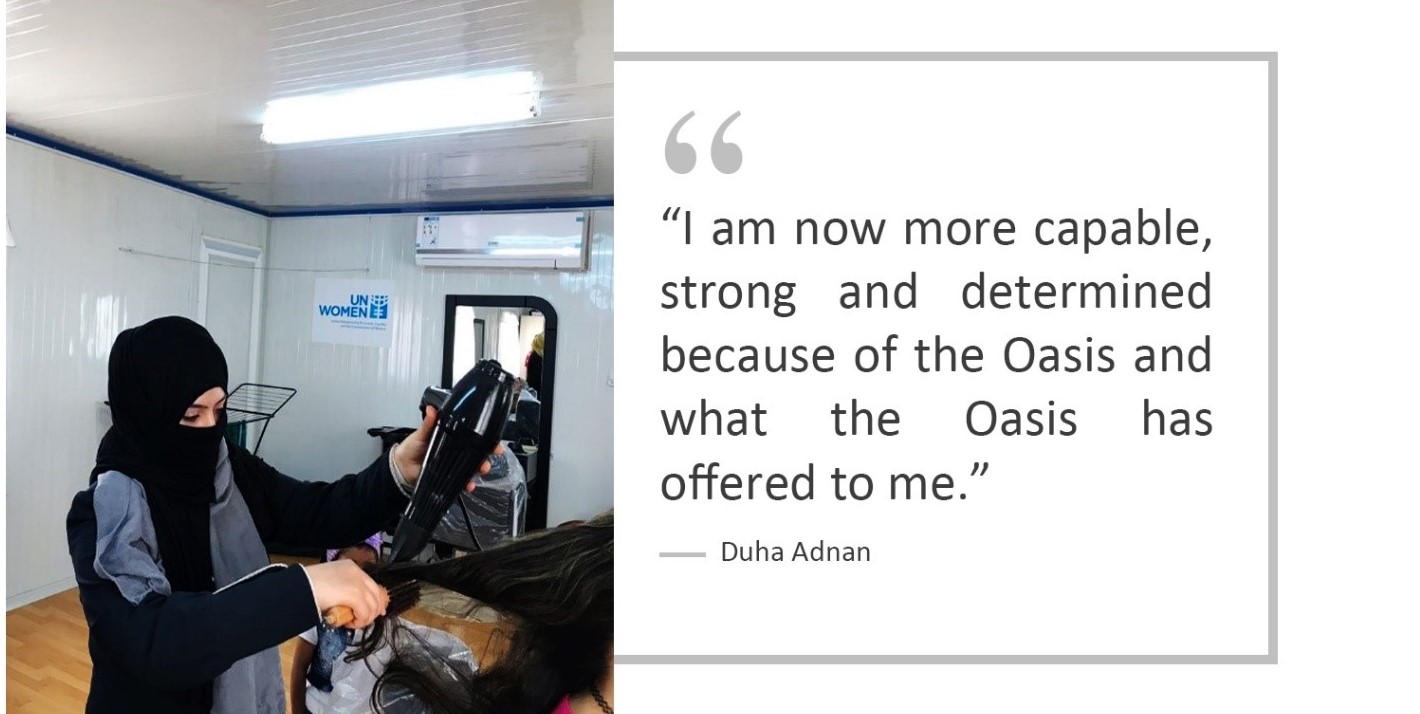Stitching together a new life: women entrepreneurs kickstart their own businesses in Za’atari and Azraq
Safiyah Abd El Ghafar and Duha Adnan are among the 43 per cent of Syrian refugee female-headed households in Jordan. To provide a livelihood for their families, these two women utilized the skills and business capacities they acquired at UN Women’s Oasis Centre to start their own micro-businesses.Date:

Safiyah Abd El Ghafar, 52, stands outside the UN Women Oasis she attended in 2014. Photo: UN Women/Nesreen El Molla
In 2013, Safiyah Abd El Ghafar arrived in Jordan with her family of 10, clutching nothing more than the hands of her children. With her elderly husband unable to find work, she soon found herself in the position of having to become the sole provider for her family. Abd El Ghafar applied for UN Women’s cash-for-work tailoring programme at the Oasis Centre for Resilience and Empowerment of Women and Girls. Not letting her gender, age, or lack of experience get in her way, the 46-year-old secured her first job.
Women of all ages, skills and education levels are supported through the UN Women’s ‘Eid Bi Eid’ (hand-in-hand) programme at the Oases Centres. UN Women applies a holistic resilience and empowerment approach to support the most vulnerable Syrian refugee women living in both the Za’atari and Azraq camps by enabling women to access sustainable and decent livelihood opportunities, coupled with protection services and community engagement. Through the programme, women are supported to foster their skills beyond the Oasis, graduating from the cash-for-work programme into running their own sustainable micro-businesses or by obtaining job permits to work outside the camp.
Fast-forward six years and Abd El Ghafar has her own tailoring business within the Za'atari camp, where she supervises four staff and provides services to 70 regular clients. She says that without the skills, support and guidance received at UN Women’s Oasis, she would not have been able to create the business she runs today.
"I learned many things… how to identify my project needs, how to save, how to deal with clients and how to market my products." -Safiyah Abd El Ghafar
Her story continues to serve as an inspiration for other women who have attended and continue to enter the Oases, such as 24-year-old Duha Adnan. After listening to stories like Abd El Ghafar's, Adnan knew that she would have the chance to run her own business. Following in the footsteps of other inspiring women she met in the Oasis at Za’atari camp, she undertook advanced cosmetology training, business management courses and gender-based violence awareness sessions.

Duha Adnan, 24, styling a client’s hair in the Za’atari Oasis. Photo: UN Women/Nesreen El Molla
Giving rise to her own makeshift beauty salon within her own home, Adnan used her newfound business acumen to apply for a down-payment for her business, which enabled her to buy new and trendy products. As Adnan became her own businesswoman, making other women look and feel beautiful, she in turn began a life make-over of her own.
Abd El Ghafar and Adnan’s stories exemplify the perseverance and resilience of the women entering UN Women’s cash-for-work programme. With the generous support of the governments of Finland, France, Iceland, Italy and Zonta International, the ‘Eid bi Eid’ programme continues to address the challenges associated with the growing vulnerability of women and girls affected by conflict and displacement.
By improving Syrian refugee and Jordanian women’s access to sustainable and decent employment, with a focus on transitioning from short-term cash-for-work to longer-term livelihood opportunities, UN Women’s four Oases reached more than 20,000 direct and indirect Syrian refugee beneficiaries overall, with 4,182 women and men refugees benefiting directly from cash-for-work opportunities provided during the year.